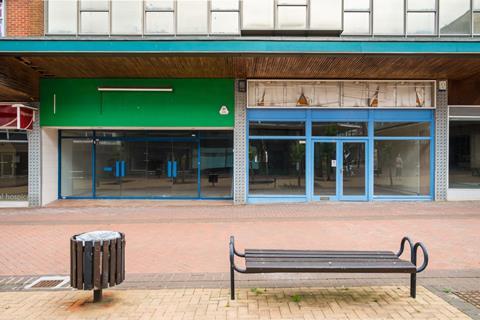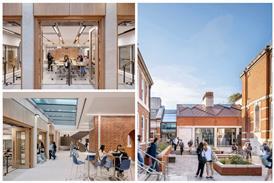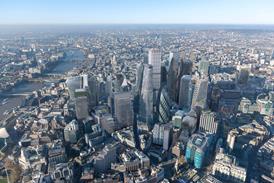Uncontrolled conversion of shops and restaurants into homes will damage town centres, says British Property Federation
The government’s plans to allow most town centre buildings to be converted to housing without planning permission have come under fire from two major developer groups.
Echoing concerns already raised by architects, the British Property Federation and business lobby group London First have said in separate responses to a government consultation on the plans, which closed late last week, that they risk causing significant harm to high streets and town centres.
The government’s plan, launched just before Christmas, proposed allowing any premise in the new Class E use class – which includes everything from offices, shops, restaurants, professional services premises, light industrial units and GP surgeries to nurseries – a permitted development (PD) right to convert to housing.

The proposal is that the new right would replace existing office to resi, retail to resi and light industrial to resi permitted development rights, which have been in place since 2015. However, the new proposal, if enacted, would include a much bigger range of properties such as restaurants and surgeries for the first time, and lift strict size limits previously in place preventing the conversion of medium or large shops.
Former RIBA president Ben Derbyshire has said the loss of local democratic control was unacceptable at a philosophical level, warned the quality of housing created would be very poor and questioned ministers’ claim that the proposal would breathe new life into cities.
>> Julia Park: We must keep fighting the battle over PDR
The British Property Federation (BPF), despite having a raft of residential developers among its members, said it was opposing the plan, saying it would have significant adverse consequences and “exacerbate the decline of our high streets, far outweighing any positive contribution to new housing supply”.
Ian Fletcher, director of real estate policy at the BPF, said the approach “will do more harm than good.” He said: “This new PDR will take control away from local authorities at a time when our high street’s future depends more than ever on strong local leadership and vision.”
The government’s plan follows a major deregulation of high street planning rules last summer, with the creation of the new “Class E” use class. This combined the vast majority of existing high street uses in to one single class, meaning that shops, restaurants, offices and industrial buildings, for example, are all able to convert into other Class E uses without restriction.
Only a small number of uses which were felt to be either particularly valuable – such as convenience stores and swimming pools – or particularly bad neighbours – such as hot food takeaways or pubs – were excluded from the new use class. The government’s proposal now is to allow any Class E building to convert to housing.
>> Also read: Architects warn of ‘disastrous’ consequences as government allows entire high streets to become housing
>> Also read: Architects warn that ‘right to regenerate’ plan could result in a ‘horror story’
London First, which includes many developers among its members, said the new proposal “risks significantly harming the sustainable futures of our high streets and town centres” by allowing uncontrolled and piecemeal conversions.
Its response to the government’s consultation pointed out that because, in most areas, residential land values will be higher than most commercial land values the plan, far from tackling the scourge of vacant property, would see “viable businesses […] ousted in favour of a residential conversion”.
It added: “Allowing the market to pepper-pot housing on an ad hoc basis in high streets and town centres that are already struggling will break up active frontages and further dilute their vibrancy and commercial success.”
The government said its proposals, launched on December 3 last year, were designed to tackle the problem of surplus commercial floorspace, and would “diversify and support” the high street, and “help support economic recovery, housing delivery and the regeneration of our high streets and town centres.”
The Royal Town Planning Institute said last week the plan was “unacceptable” and would put local essential services at risk and “tear at the fabric of local character”.
The RTPI also said that despite the government’s planned introduction of space standards for homes produced under permitted development, there was still a danger that poor quality PD-produced homes “become the social disasters of the 2030s”.
















5 Readers' comments